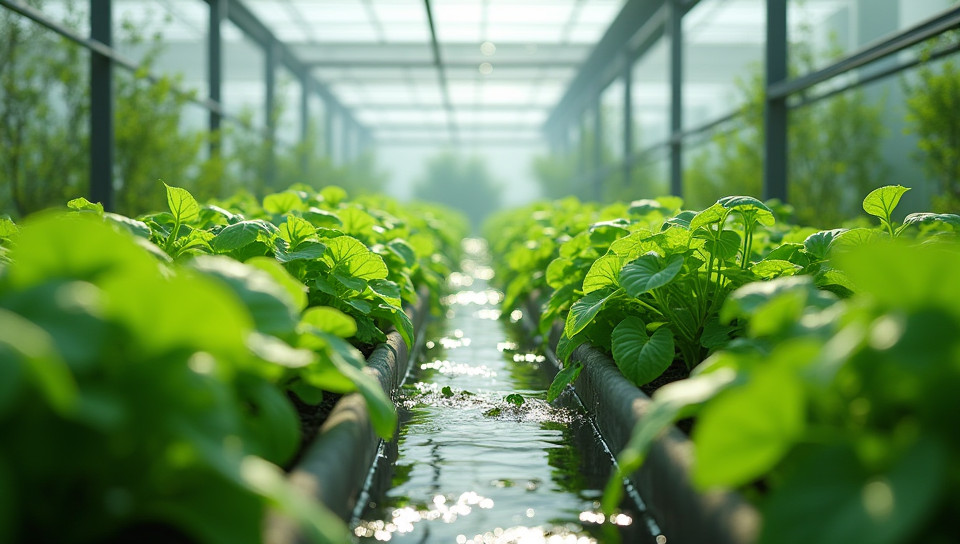Hydroponics requires more water 67%

The Water-Efficient Alternative: Challenging Hydroponics' Reputation
As the world grapples with the challenges of sustainable agriculture, hydroponics has emerged as a promising solution for increasing crop yields while minimizing water usage. However, despite its benefits, hydroponics is often misunderstood to be a water-intensive method of growing crops. In reality, hydroponics requires more water than traditional farming methods, but not necessarily in the way you might think.
Water Requirements in Hydroponics
Hydroponics involves growing plants in a nutrient-rich solution rather than soil. This approach allows for precise control over the amount of water and nutrients delivered to each plant, which can lead to improved crop yields and reduced water usage per unit area. However, hydroponic systems require a constant supply of clean water to operate, which can be a challenge in areas where water is scarce.
The Water Cycle in Hydroponics
In traditional farming methods, plants absorb water from the soil through their roots, with excess water evaporating or being drained away. In contrast, hydroponic systems rely on a continuous cycle of water and nutrient solution to support plant growth. This cycle involves pumping water through a network of tubes and reservoirs, which can lead to increased water usage compared to traditional farming methods.
Factors Affecting Water Usage in Hydroponics
While hydroponics may require more water than traditional farming methods in some respects, there are several factors that can affect water usage in hydroponic systems. These include:
- Crop type and growth stage
- System design and efficiency
- Climate and weather conditions
- Level of automation and control
Challenges and Opportunities for Hydroponics
Despite the challenges associated with maintaining a constant supply of clean water, hydroponics offers several opportunities for improving crop yields while minimizing water usage. By optimizing system design and operation, farmers can reduce water consumption per unit area while still achieving high yields.
Conclusion
Hydroponics may require more water than traditional farming methods in some respects, but this does not necessarily mean it is a water-intensive approach to agriculture. By understanding the water cycle in hydroponics and optimizing system design and operation, farmers can reduce water usage while improving crop yields. As we continue to navigate the challenges of sustainable agriculture, hydroponics offers a promising solution for increasing food production while minimizing our impact on the environment.
- Created by: Arjun Singh
- Created at: Feb. 1, 2025, 2:28 p.m.
- ID: 19857



